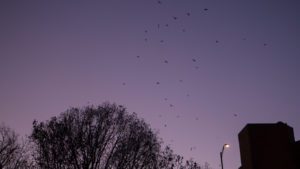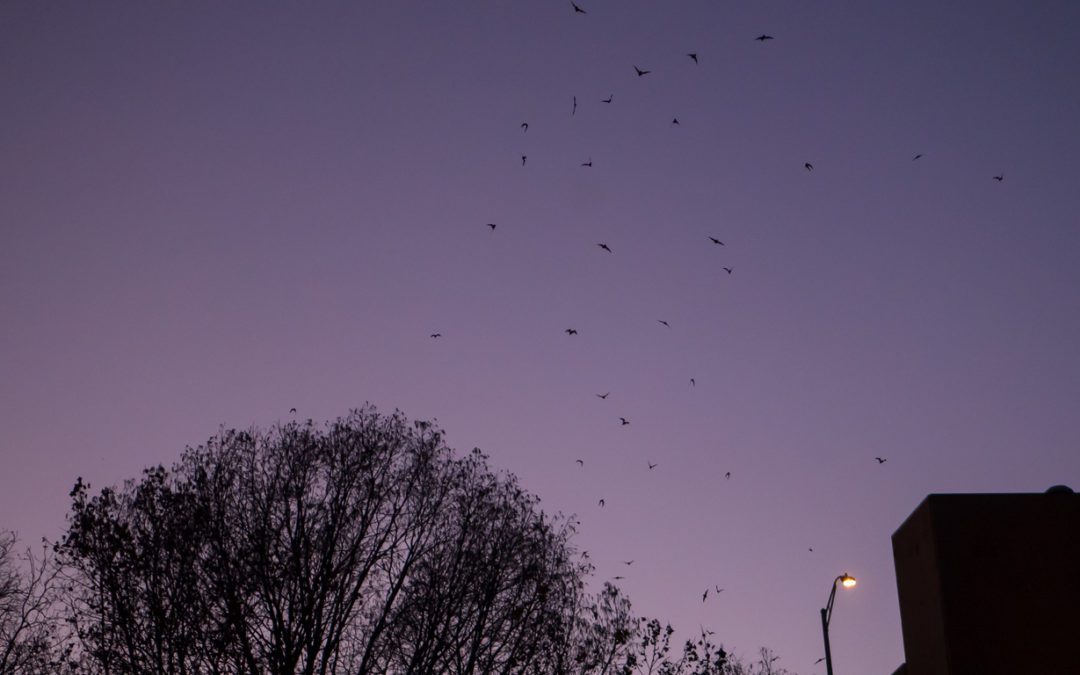Because bats are nocturnal – hunting for food at night and remaining dormant during the day – it is not uncommon to look up and see them in the evening sky. Bats are integral in regulating the insect population, specifically mosquitos, and they contribute to the growth of plants and flowers by pollinating and spreading seeds. Most often, seeing bat activity at night is simply an indication they are fulfilling their natural role in the health of our environment. However, there are some instances in which a bat presence may be cause for concern.
When A Bat Presence Should Cause Concern
There are several signs that may indicate the presence of roosting bats in a structure. Increased flight activity in a centralized area of a building, typically the chimney or roof vents, may suggest bats are gaining entry to walls or the attic space through gaps in those locations. Bats are able to fit through crevices as small as a quarter of an inch and seek out small, confined, dark spaces to nest. These areas may also exhibit a buildup of feces.
An overpowering ammonia smell permeating walls may be caused by an accumulation of bat guano. This is a particular concern since guano can damage insulation irrevocably, jeopardizing the safety and efficiency of your home. It can also host dangerous zoonotic diseases like histoplasmosis.
A bat’s cry sounds very similar to that of a bird, and homeowners often misidentify the wildlife problem affecting their house. A high-pitched squealing or
Contact A Professional
If you experience any of these indicating factors, contact the professionals at ABC Wildlife immediately. Our animal control specialists will be able to assess the circumstances and create a plan to humanely and safely eliminate the bat presence in your home. Ideally, this is accomplished using an exclusion device that acts as a one-way door, allowing bats to leave but not re-enter the building. Our experienced technicians will also identify the entry points through which bats are gaining access and, once bats are no longer present, seal them to prevent future animal breach. Call one of our helpful representatives today at (847) 870-7175.


